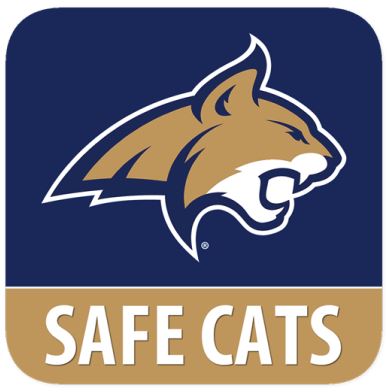EOP Section 4: Organizations and Assignment of Responsibilities
SECTION 4: ORGANIZATION & ASSIGNMENT OF RESPONSIBILITIES
This section provides an overview of the broad roles and responsibilities of faculty, staff and students and the key functions that external agencies may accomplish in support of an emergency at MSU. For details regarding the roles of key personnel/ departments during an emergency, see Functional Annex A.
A. FACULTY, STAFF & STUDENTS
Individual preparedness for faculty, staff, and students is critical to emergency operations and response at MSU. Faculty, staff, and students should become familiar with MSU emergency procedures, ensure they are signed up to receive emergency alerts from MSU, and create their own personal plans for emergencies. Employees should know their responsibilities within their departments/offices in an emergency and determine how to communicate with coworkers and families in an emergency. Students should follow the directions of faculty, staff and emergency personnel during an emergency and create a plan to communicate with their parents and families off campus. Residential students should follow the directions of Residence Life staff and emergency personnel in an emergency situation. All MSU personnel should follow the directions of emergency authorities. For assistance in creating emergency plans and kits, students, faculty, and staff can ask the MSU Emergency Management Coordinator for guidance.
B. EXTERNAL DECLARATIONS OF EMERGENCY
Emergency situations that may not originate at or directly affect MSU may be declared at the national level (by the president), the state level (by the Governor) or the local level (by the mayor). MSU may activate the EOP in support of such declarations.
C. EXTERNAL ASSISTANCE
External assistance for an emergency situation at MSU may be offered or arrive unannounced from any of the areas noted below. External offers for assistance will be referred to the Emergency Management Coordinator (or the EOC if activated) for determination whether or how to incorporate such resources into the emergency operation. Appendix H illustrates the roles of several potential external partners that may assist MSU in an emergency. Such assistance may include:
- external law enforcement agencies including, but not limited to, Montana Highway Patrol, City of Bozeman Police, Gallatin County Sheriff’s Department, etc.;
- state agencies such as the Department of Transportation, Department of Agriculture, Department of Environmental Quality, Department of Labor & Industry, Fish Wildlife and Parks, Justice Department, Public Health & Human Services, Military Affairs/ National Guard, DNRC, etc.;
- federal agencies such as FEMA, Department of Justice/FBI, Department of Ag, DHHS/CDC, USFS, etc.;
- government-sponsored volunteer organizations such as Community Emergency Response Teams (CERT), etc.; and
- private-sector and volunteer organizations that assist with sheltering, feeding, services for persons with disabilities and disability advocacy groups, social services, health-related services, community and faith-based organizations, animal welfare and/or humane organizations, and business and industry offers for assistance.

